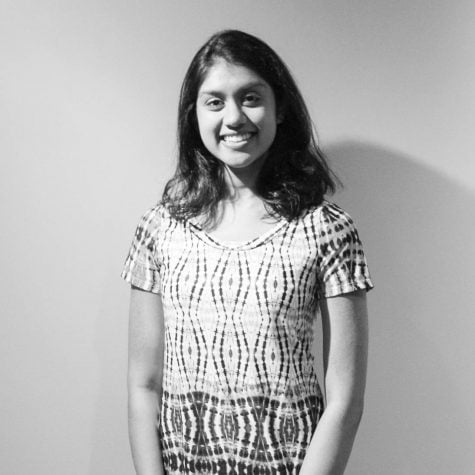Rape: a war tactic used by groups allied to the government of South Sudan.
On March 11, the United Nations Human Rights Office released a report detailing the host of crimes specifically targeting women and children in South Sudan.
“The High Commissioner’s report alleges crimes against humanity and war crimes,” said David Marshall, officer in charge of the Global Issues Section for the United Nations, to The Guilfordian. “Both are considered atrocity crimes, the most serious under international law.”
“The crisis is deep and profound. The most horrifying has been the campaign of sexual violence by government soldiers and associated militia.”
In December 2013, conflict was ignited by a political struggle between President Salva Kiir, aligned with the Dinka ethnic group, and former Vice President Riek Machar, aligned with the Nuer ethnic group.
“There are mainly political factors at play,” said Marshall. “A rivalry between two men led to the split in the main political party, which led to supporters of each group taking up arms — the government and its allied militia against the opposition and armed youth.”
However disturbing the initial political situation may have been, the current humanitarian concerns outweigh bureaucratic matters.
“In 2015, the government launched a large scale attack to destroy the opposition, including civilians who were perceived to be supporters of the opposition,” said Marshall. “This campaign of violence appeared to focus on women and children and their property.”
From April to September 2015 the U.N. recorded more than 1,300 accounts of rape in Unity, one of South Sudan’s 10 states.
“The sexual assaults were characterized by their extreme brutality, with women who tried to resist, or even looked their rapist directly in the eye, being killed in some cases,” said a U.N. press release.
“If you looked fresh or smart (young or good looking), about ten men would rape the woman; the older women were raped by about seven to nine men,” explained one witness in the report.
Sparing no one, the conflict has subjected children to violence, rape and recruitment. Since the start of the conflict, the U.N. has received 702 accounts of children experiencing sexual violence. There were 617 child soldiers recruited in 2014 and many more conscripted by opposition forces after the eruption of violence in Unity State.
Quantitative measurements have been difficult to obtain due to the silencing of critical voices. According to the released U.N. report, seven journalists were killed and many more arrested in 2015.
“It appears that the South Sudanese conflict could be compared to the beginning stages of the Rwandan conflict,” said Mary Hope, part-time lecturer of peace & conflict studies.
The question that arises now is what will differ in the response of the U.N. in Rwanda to South Sudan.
“The U.N., through the Security Council, has tried to address the threat to international peace and security that is the situation in South Sudan,” said Marshall. “But given the size of the country, government behavior and the scope of the problem, it was proved immensely challenging. Ultimately it is the government of South Sudan that bears the primary responsibility to protect its own people. A burden they are not meeting.”
Yet the horror of the current situation in South Sudan has blinded people from discriminating between people trying to help, United Nations Mission in South Sudan peacekeepers and aggressors.
“The government appears to fear no one — the U.N. or its peacekeepers,” said Marshall. “The U.N. is operating in an increasingly dangerous environment.”
Despite the shocking facts released about South Sudan, the conflict remains relatively unknown in the Western world.
“As a PECS professional, I want the light shown on this conflict,” said Hope. “Why? Because innocents may well be in fatal danger with no voice.”
Marshall shared Hope’s sentiment.
“The situation has become intolerable for civilians,” said Marshall. “The suffering is immense and unless the apparatus of violence is dismantled and persons held to account, 2016 could see further massive human rights violations against the civilian population.”







